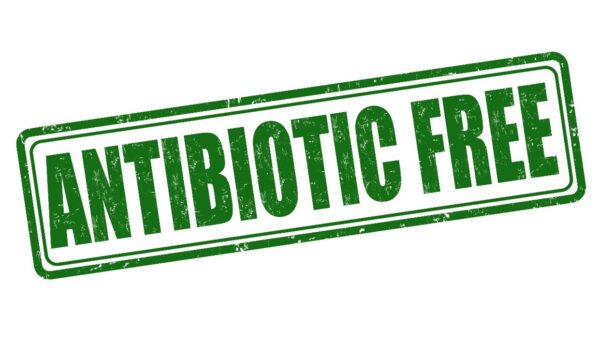In recent years, consumers have become increasingly conscious of the food they eat and the impact it has on their health and the environment. One area that has garnered significant attention is the production of antibiotic-free meat. As the demand for healthier, more sustainable food sources grows, antibiotic-free meat has emerged as a crucial element in the movement toward responsible consumption. Superior Farms in Denver will explore the numerous benefits of antibiotic-free meat for both human health and the environment, highlighting how the practice of raising animals without antibiotics contributes to a safer, healthier, and more sustainable future.
What Is Antibiotic-Free Meat?
Antibiotic-free meat refers to animals raised without the use of antibiotics, particularly those used to promote growth or prevent disease in livestock. In conventional meat production, antibiotics are often administered to animals in low doses to prevent illness in the unsanitary, overcrowded conditions typically found on industrial farms. This practice has led to widespread concern about the overuse of antibiotics, both in terms of human health and environmental consequences.
The antibiotic-free label is given to meat products from animals that have never been treated with antibiotics during their lifetime. If an animal becomes sick and requires antibiotics, it is removed from the antibiotic-free production cycle to ensure the integrity of the label.
Health Benefits of Antibiotic-Free Meat
Reduced Risk of Antibiotic Resistance
The overuse of antibiotics in agriculture has been identified as a major contributor to the development of antibiotic-resistant bacteria, which can be transferred to humans through the consumption of meat or exposure to contaminated environments. By choosing antibiotic-free meat, consumers are supporting farming practices that reduce the overall use of antibiotics, thereby helping to combat the growing threat of antibiotic resistance.
Cleaner and Healthier Meat
Animals raised without antibiotics are typically kept in cleaner, more humane conditions than those in conventional farming systems. This is because without the use of antibiotics as a safety net, farmers must take extra precautions to ensure their animals remain healthy. This includes providing them with better-quality feed, more space to roam, and environments that reduce the risk of disease.
As a result, the meat produced from antibiotic-free animals is generally healthier and less likely to contain harmful contaminants. Consumers who prioritize antibiotic-free meat can enjoy peace of mind knowing that they are consuming products from animals raised in better conditions.
Environmental Benefits of Antibiotic-Free Meat
Reduced Water and Soil Contamination
Conventional farming practices, particularly in large-scale industrial operations, often lead to significant environmental contamination. When antibiotics are administered to livestock, they are excreted in waste, which can contaminate nearby water sources and soil. This contributes to the spread of antibiotic-resistant bacteria in the environment, which can further exacerbate the public health crisis.
Antibiotic-free farming practices reduce this risk by eliminating the use of these drugs altogether. Farmers who raise animals without antibiotics are more likely to adopt sustainable practices that minimize waste and prevent contamination, leading to cleaner water and soil and a healthier ecosystem.
Promoting Biodiversity and Ecosystem Health
Another key environmental benefit of antibiotic-free meat is the promotion of biodiversity and overall ecosystem health. Industrial farming operations that rely on antibiotics often support monoculture practices, which can lead to habitat destruction, soil depletion, and a reduction in biodiversity. These large-scale operations also contribute to the overuse of resources, such as water and land, putting further strain on the environment.
On the other hand, antibiotic-free farming practices are often associated with more sustainable methods of agriculture, such as rotational grazing and organic farming. These methods help preserve natural habitats, promote soil health, and support biodiversity by allowing animals to graze on varied plant species in open pastures. The result is a more balanced and sustainable ecosystem.
Lower Greenhouse Gas Emissions
Antibiotic-free farming can also contribute to a reduction in greenhouse gas emissions. Large-scale industrial farming operations are significant sources of methane and carbon dioxide, two of the most potent greenhouse gases contributing to climate change. These emissions come from various sources, including animal waste, feed production, and the energy required to maintain large-scale farming facilities.
By raising animals in smaller, more sustainable systems that do not rely on antibiotics, farmers can significantly reduce their carbon footprint. Many antibiotic-free farms use rotational grazing techniques, which help sequester carbon in the soil and reduce methane emissions from livestock. This contributes to a more sustainable and environmentally friendly food production system.
Supporting a Sustainable Future
Choosing antibiotic-free meat is not only beneficial for personal health and the environment but also supports a more sustainable future for the planet. By opting for antibiotic-free products, consumers are encouraging the growth of responsible farming practices that prioritize animal welfare, human health, and environmental sustainability. This shift in consumer demand can lead to broader changes in the agricultural industry, pushing for greater transparency and accountability in how animals are raised and how food is produced.
The benefits of antibiotic-free meat extend far beyond individual health. By choosing meat products raised without antibiotics, consumers can help mitigate the growing threat of antibiotic resistance, enjoy cleaner and healthier food, and reduce their impact on the environment. Furthermore, supporting antibiotic-free meat production promotes more humane and sustainable farming practices, contributing to a healthier ecosystem and a more responsible food system.
As awareness of these benefits continues to grow, antibiotic-free meat is likely to become an even more important part of the global conversation on health, sustainability, and responsible consumption.

